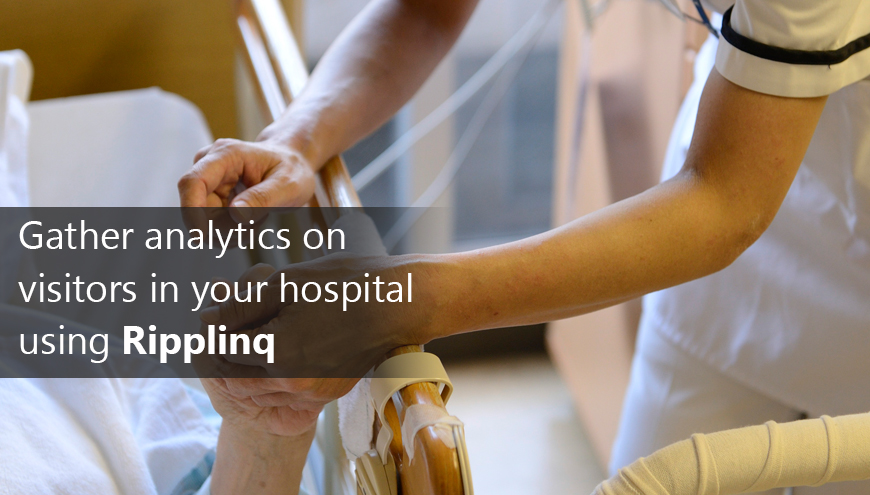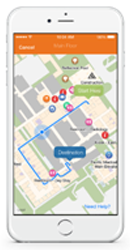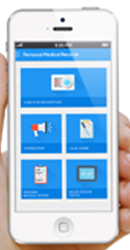
Ripplinq can be used across the length and breadth of medical operations. Some of the most popular use cases that create significant value are as follows

Personalization – Ripplinq have the ability to customize health content according to a patient or healthcare provider’s mobile phone history and current health information. Such personalization enables direct one to one conversations that are highly relevant and delivered at the right time.
Electronic health records – Ripplinq technology can enable patients and physicians to receive relevant information at the right moment, based on geo-location. For example, when a patient is waiting outside the doctor’s room, the latest medical records can directly be sent to his/her mobile phone, in order to discuss them with the doctor. In another example, Ripplinq installed near patients’ beds can automatically notify the doctor or other relevant hospital staff about the patient’s specific medical records, directly on their mobile phones, when they visit the patient

In-door navigation systems – Given the growth of massive integrated health care facilities and multi-speciality hospitals, ripplinq can greatly help with indoor maps and navigation. Ripplinq technology can be invaluable to hospitals by effectively keeping track of devices, assets, hospital staff and patients. Ripplinq can be leveraged for a wide variety of use cases in hospitals, from innovative and efficient record keeping to streamlining operations to assist in navigation. In addition, given the growth of wearables, Ripplinq can also be paired with wearables in order to deliver highly contextual and hyper-local content to patients/users. The Leiden University Medical Centre at Netherlands uses Ripplinq in one of the most innovative ways. The cardiology department of medical center has been using a cloud-based Internet of Things (IoT) platform along with iBeacon technology to treat patients with Acute myocardial infarction (AMI), in order to ensure quick treatment and better survival rates. Patients are fitted with a beacon-enabled wristband as soon as they are admitted. This band allows the hospital to track the patient’s movements across several labs, thus providing insights into the patient’s location and status in real time.


Increased data and analytics – One of the biggest advantages of ripplinq technology is its ability to collect a wealth of data that is contextual to the patient (this includes situations, emotions and preferences). This along with physiological data and usage data can be used to inform users about purchases and prescribing recommendations to them.

Ripplinq technology can be invaluable to hospitals by effectively keeping track of devices, assets, hospital staff and patients. Beacons can be leveraged for a wide variety of use cases in hospitals, from innovative and efficient record keeping to streamlining operations to assist in navigation. In addition, given the growth of wearables, beacons can also be paired with wearables in order to deliver highly contextual and hyper-local content to patients/users.
The Leiden University Medical Centre at Netherlands uses Ripplinq in one of the most innovative ways. The cardiology department of medical center has been using a cloud-based Internet of Things (IoT) platform along with iBeacon technology to treat patients with Acute myocardial infarction (AMI), in order to ensure quick treatment and better survival rates. Patients are fitted with a beacon-enabled wristband as soon as they are admitted. This band allows the hospital to track the patient’s movements across several labs, thus providing insights into the patient’s location and status in real time.